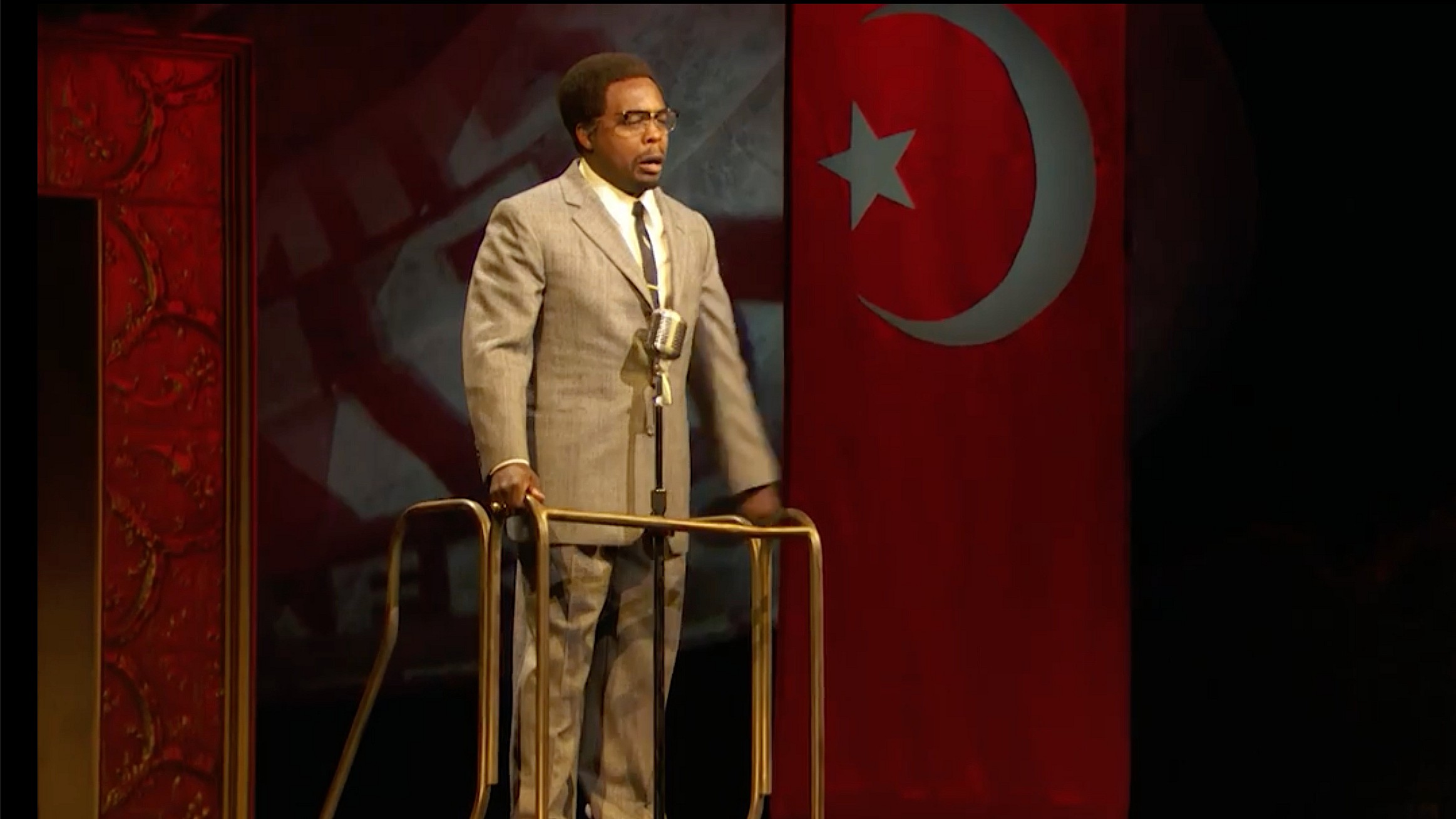“X: The Life and Times of Malcolm X,” playing at Manhattan’s renowned Metropolitan Opera House until early December, is part of a concerted effort to bring African-American stories (and audiences) to a venue not traditionally known for prioritizing them. Following the murder of George Floyd, the Met staged its very first work by a Black composer in 2021, Terence Blanchard’s “Fire Shut Up in My Bones,” as well as this year’s “Champion,” another Blanchard-composed biographical opera about closeted boxer Emile Griffith. And while the opening of “X” continues to confirm that Black narratives deserve the highbrow-culture treatment, audiences should arrive fully aware of what they’re in for.

Written by Anthony Davis with a libretto by Thulani Davis (the two are cousins), “X” debuted as a New York City Opera production in 1986. It lay dormant for decades until a 2006 revival in Oakland and another staging last year at the Detroit Opera House. An opera (still regarded as a largely elitist art form) relating the life story of a revolutionary Black militant figure in American history, a man once targeted by the FBI, is a somewhat subversive moment that shouldn’t be lost on anyone.
The mere existence of the jazzy “X: The Life and Times of Malcolm X” — the third opera by a Black composer in Metropolitan Opera history — is sure to attract many African-Americans who may never have bothered checking the Met Opera season calendar before. That said, buyer beware: the production is a lengthy three hours and twenty minutes, with two intermissions between Acts I, II and III. This is nearly identical to director Spike Lee’s “Malcolm X,” the 1992 biopic, clocking in at only two minutes longer. However, this raises cautionary point two: following along with X requires reading “surtitles” (live performance subtitles).
Though the entire production features operatic English dialogue, catching what’s being said is nearly impossible without glancing at the small seat-back screens featuring real-time surtitles. The effect is that of watching a foreign film with subtitles — if you’re accustomed to watching foreign films. The Met regularly stages operas much longer than “X.” (“Die Meistersinger” lasted six hours.) And surtitles are par for the course at operas often performed in Italian or German. But if “X” is your first opera, be forewarned: this isn’t a musical or even the more theater-like “Porgy and Bess.” Oh — and decent orchestra seats go for upwards of $300 each.
Act I of “X” begins with an Afrofuturistic flourish: a spaceship overhead displaying “1931, Lansing, Michigan.” (Because audiences aren’t likely to expect a spacecraft, the structure may simply appear to them as a wide banner presenting various locations and messages. Which is fine.) The story opens with the milieu that young Malcolm Little grew up in, his parents’ home, in which there is a local meeting of the Universal Negro Improvement Association, famously founded by Marcus Garvey. Police soon arrive, explaining to matriarch Louise Little that her husband, the Rev. Earl Little, has died in a dubious streetcar accident.
Anyone familiar with the beats of “The Autobiography of Malcolm X,” or the aforementioned Spike Lee classic, knows what’s to come. Young Malcolm Little (actor Bryce Christian Thompson) sings an aria, “Momma, help me,” as he’s separated from his nuclear family to live with his older half-sister Ellie in Boston. The first act ends as he’s jailed for robbing a wealthy home as a young adult. Throughout, Anthony Davis’s opera score contains jazz-inflected elements reportedly influenced by Malcolm X’s speech patterns, conducted by the masterful hand of Kazem Abdullah.
Act II presents the adult Malcolm (baritone Will Liverman) brooding in jail when he’s soon introduced to the teachings of the Nation of Islam’s Honorable Elijah Muhammad by his brother, Reginald. The prison setting quickly gives way to the father-son relationship between the newly rechristened Malcolm X and Muhammad. Tenor Victor Ryan Robertson offers more of a stately Elijah Muhammad than the slightly nebbish Yoda of the ’92 biopic. By the start of Act III, Malcolm breaks with the Nation over his comments regarding the assassination of President Kennedy.
Hearing phrases like “the chickens come home to roost” and “betrayal is on his lips” sung by opera singers might make spectators pause for a moment. Witnessing the life of Malcolm X, who was once ostracized in mainstream circles as a radical Black supremacist, being commemorated by a European art form with a largely white audience dressed in their Sunday best can feel a little disconcerting. Critically, “X” doesn’t serve up much about his marital relationship with Betty Shabazz (soprano Leah Hawkins). Additionally, the opera’s final scene at the fateful Audubon Ballroom never actually presents Malcolm’s shooting, strange for an art form known for the bloody endings of its tragedies.
Still, “X: The Life and Times of Malcolm X” is well worth the experience. The production is culturally historic and artistically stellar, despite its three-hour-plus length and exorbitant expense. Most should want to check it out — by any means necessary.

Miles Marshall Lewis (@MMLunlimited) is an author and Harlem-based cultural critic whose work has appeared in The New York Times Magazine, GQ, Rolling Stone and many other outlets. Lewis is currently finishing a cultural biography of comedian Dave Chappelle, his follow-up to Promise That You Will Sing About Me: The Power and Poetry of Kendrick Lamar.
Never miss a beat: Get our daily stories straight to your inbox with theGrio’s newsletter.

